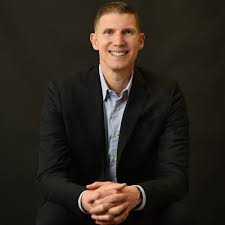
What is your unique identity? Which gifts do you have to offer that are truly special? How can you model self-awareness and authenticity for others at work?
Robb Holman has been a lifelong serial entrepreneur. He's founded numerous for-profit and nonprofit organizations. He's currently the founder and CEO of Holman International, a global leadership consultancy. And his new book is Lead the Way: Inside-Out Leadership Principles for Business Owners and Leaders.
I recently interviewed Holman for the LEADx Leadership Show, where we discussed his new book and the five areas to explore for self-discovery. (The interview below has been lightly edited for space and clarity.)
Kevin Kruse: What is the big idea of your book?
Robb Holman: A lot of workers are disengaged doing what they do. I'll spell out disengagement as a lack of meaningful purpose and passion in what they do in their professional life. The main premise of the book is to see that lack of engagement, that engagement gap, really closely. Helping people truly understand why they personally exist on the planet so they can maximize their passion and their purpose personally and see that infused into the workplace and what they do as a team member, an employee, and as a leader. The book is about if you want to understand why you exist, understand who you are uniquely as an individual first, and that will lead you down the path of understanding why you exist.
Kruse: Is this kind of personal development work really the role of managers or HR departments or is it the role of the individual?
Holman: I think it's both/and. I would encourage leaders to lead the way in that regard. And I think a lot of HR directors and leaders that I come across, oftentimes they're doing a great job with professional development, sometimes with a missing gap. There's that personal development piece, and then bridging the gap into professional development.
So in a sense, that personal development meets or marries the professional development in a pretty seamless way. A lot of times people think of things in categories. “Well, I've got to work on this personal development and then when I get done with that, then I'm gonna work on the professional development.” And people seem to think, “Well, I'm a little ahead of the game if I have that.”
Kruse: You say knowing who you are is where it all begins. How do we begin that journey?
Holman: There are five key areas for me in helping you discover or rediscover who you are that leads into why you exist and seeing that infused in the workplace. The first is, do you know your personal core values? The things that you stand firm in. Strong convictions of the heart as I like to call them.
The second area is your top strengths. The things that come very easy to you. They're not as much hard work. They're pretty seamless, there's a lot of positive fruit that comes from it. What are those top strengths for you?
Third, what are the top passion areas that you have in your life? And these are things that literally have you leaping out of bed in the morning in which to accomplish or to do. They are different for everyone. They could be work-related. They could be more hobby or pleasure related. Whatever it is, what are the things that literally you could talk about these things or engage in these things all day long?
The fourth area is what are your top life milestones? These are the things, good, highly challenging, or somewhere in the middle, that have helped shaped you to become the person you are today. And it could be the divorce of a family member. It could be the birth of your first child. It could be your first job, your first entrepreneurial paycheck. Whatever it is, but no matter if it's really great, or a huge trial or tribulation, these are the things that, at that time, it's like a stake was put in the ground. Maybe you didn't fully realize it, but you knew you kind of would never be the same again. It's about kind of owning your own story and in that process, helping others begin to own their stories as well.
And then the fifth and final area is, what's the primary gift you've been given? And understand that gift, there could be some crossover strengths and passions and stuff, but the gift isn't as much meant for you. It's meant for other people to be impacted and influenced by. For instance, are you just a gifted encourager? Are you a really compassionate person? Are you just a gifted leader? In a sense when you understand your primary gift, these are an area that you can then come alongside other people and where they can kind of unwrap you, so to speak, and it's a legacy you leave behind upon the earth when you are no longer here anymore that has the potential to affect future generations.
So those are the five areas, that help affirm and encourage who you are and then it leads into the next appropriate question, “All right, why am I actually here?”
__
We can’t become truly engaged at work if we haven’t first figured out who we uniquely are and what we have to offer to the world. Leaders must model the way and Holman’s five questions are a great place to start.





